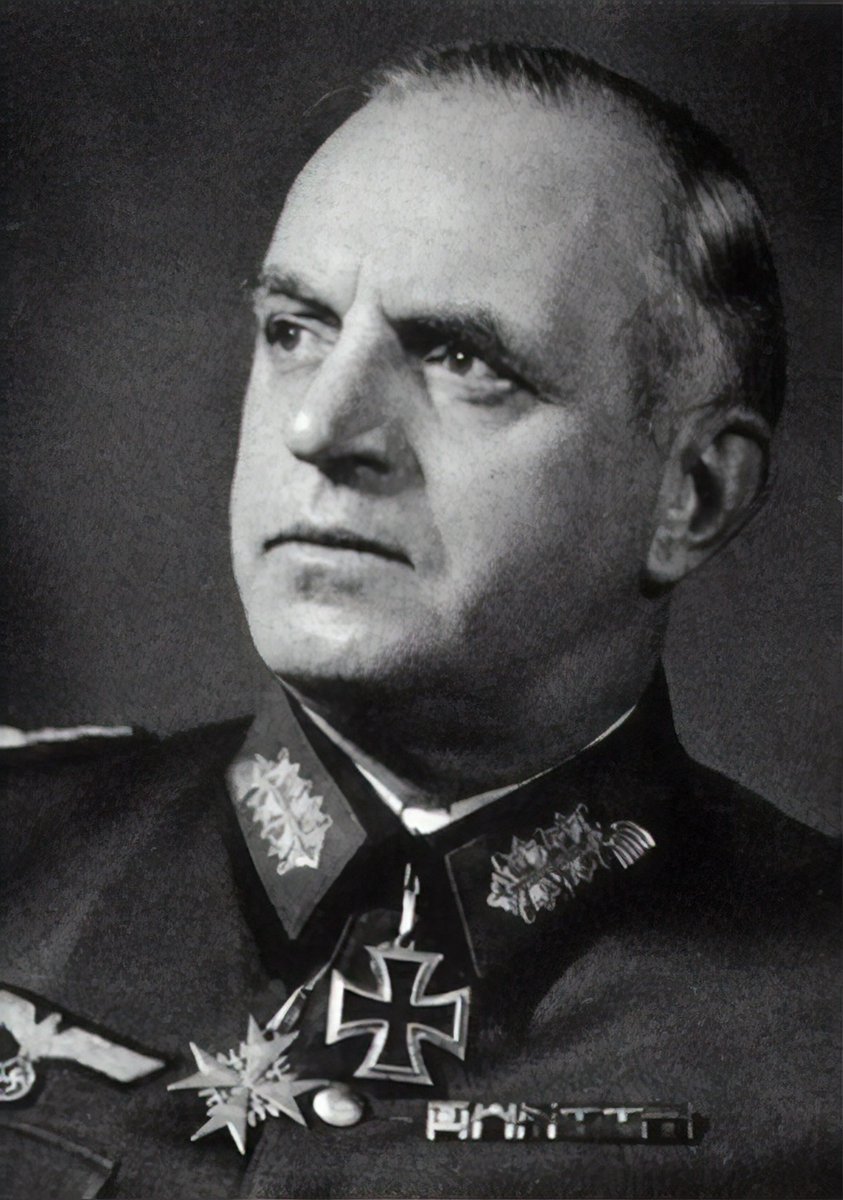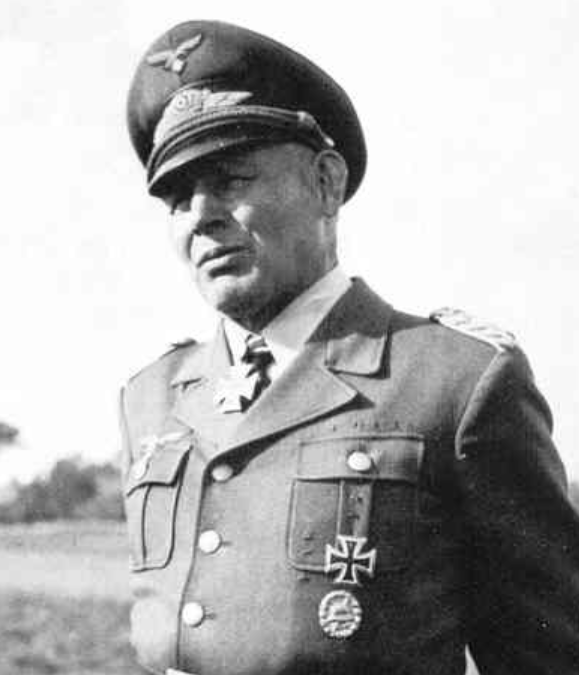In WW2, Ian Monroe, posing as "Lord Aberfeldy," charmed captured German generals at Trent Park, North London, with walks, cigarettes and extra polish for their boots.
He turned their vanity into a goldmine of intelligence for the Allies.
Here's how he did it:
(🧵)
He turned their vanity into a goldmine of intelligence for the Allies.
Here's how he did it:
(🧵)

During the Second World War, Trent Park in North London served as a unique facility for housing captured German generals, and the designation of "Lord Aberfeldy" as their Welfare Officer was a masterstroke of British intelligence.
This role, carefully crafted to exploit the psychology of the high-ranking prisoners, was filled by Ian Monroe, an intelligence officer within the British Secret Service.
Under the guise of a benevolent aristocrat, Monroe engaged the generals in seemingly mundane conversations about their daily needs and comforts within the mansion house.
(continued)
This role, carefully crafted to exploit the psychology of the high-ranking prisoners, was filled by Ian Monroe, an intelligence officer within the British Secret Service.
Under the guise of a benevolent aristocrat, Monroe engaged the generals in seemingly mundane conversations about their daily needs and comforts within the mansion house.
(continued)
His polished demeanour and apparent concern for their well-being fostered a sense of trust, encouraging the generals to lower their guard and share sensitive insights into Nazi military operations.
The creation of "Lord Aberfeldy" was not merely a deception but a calculated strategy to manipulate the captives’ perceptions, leveraging their ego for military information and admittance of war crimes.
(continued)
The creation of "Lord Aberfeldy" was not merely a deception but a calculated strategy to manipulate the captives’ perceptions, leveraging their ego for military information and admittance of war crimes.
(continued)
The ruse was further enhanced by the fabricated claim that Lord Aberfeldy was a distant cousin of King George VI, a detail the German generals readily accepted!
This fiction appealed to their vanity and reinforced their sense of importance as elite members of Hitler’s military machine. The generals, housed in the relative comfort of Trent Park, were treated with a level of care and attention that contrasted sharply with typical prisoner-of-war conditions.
(continued)
This fiction appealed to their vanity and reinforced their sense of importance as elite members of Hitler’s military machine. The generals, housed in the relative comfort of Trent Park, were treated with a level of care and attention that contrasted sharply with typical prisoner-of-war conditions.
(continued)
By assigning a supposed Lord as their caretaker, British intelligence cleverly catered to the generals’ egos, making them feel valued and respected.
This psychological manipulation was critical, as it encouraged the prisoners to speak more freely, unaware that their words were being meticulously recorded and analysed.
(continued)
This psychological manipulation was critical, as it encouraged the prisoners to speak more freely, unaware that their words were being meticulously recorded and analysed.
(continued)
Ian Monroe’s methods were subtle yet highly effective.
He often invited generals for leisurely strolls through the grounds of Trent Park, strategically pausing beneath trees or near objects concealing microphones.
These casual walks provided the perfect setting for Monroe to steer conversations toward topics of military significance, all while maintaining the pretense of discussing routine matters.
The live recordings of their conversations, made in what was known as The M Room, captured invaluable intelligence about Nazi strategies, plans, and internal social dynamics.
(continued)
He often invited generals for leisurely strolls through the grounds of Trent Park, strategically pausing beneath trees or near objects concealing microphones.
These casual walks provided the perfect setting for Monroe to steer conversations toward topics of military significance, all while maintaining the pretense of discussing routine matters.
The live recordings of their conversations, made in what was known as The M Room, captured invaluable intelligence about Nazi strategies, plans, and internal social dynamics.
(continued)
The generals, lulled by Monroe’s charm and the illusion of camaraderie, had no inkling that their trusted confidant was feeding their words directly to British intelligence.
Monroe’s role extended beyond espionage to maintaining the facade of a dutiful welfare officer. Every two weeks, he traveled to Central London to purchase items requested by the generals, such as boot polish, cigarettes, wine, or whisky.
These small acts of apparent kindness further solidified their trust in him, as they interpreted his efforts as genuine care for their well-being.
(continued)
Monroe’s role extended beyond espionage to maintaining the facade of a dutiful welfare officer. Every two weeks, he traveled to Central London to purchase items requested by the generals, such as boot polish, cigarettes, wine, or whisky.
These small acts of apparent kindness further solidified their trust in him, as they interpreted his efforts as genuine care for their well-being.
(continued)
By fulfilling these requests, Monroe reinforced the illusion of Trent Park as a place of civility and respect, rather than a covert intelligence-gathering operation.
The generals’ appreciation for these gestures made them more amenable to engaging in open discussions, inadvertently providing British intelligence with a steady stream of actionable information.
(continued)
The generals’ appreciation for these gestures made them more amenable to engaging in open discussions, inadvertently providing British intelligence with a steady stream of actionable information.
(continued)
The success of the Lord Aberfeldy deception underscores the sophistication of British intelligence during the war. By creating a persona that resonated with the generals’ sense of self-importance, the Secret Service turned a group of high-ranking prisoners into unwitting sources of critical intelligence.
The operation at Trent Park was a testament to the power of psychological insight, showing how trust and ego could be manipulated to serve strategic ends.
(continued)
The operation at Trent Park was a testament to the power of psychological insight, showing how trust and ego could be manipulated to serve strategic ends.
(continued)
Ian Monroe’s ability to embody the role of Lord Aberfeldy while orchestrating this elaborate ruse highlights the ingenuity and resourcefulness of wartime intelligence efforts.
The legacy of this operation remains a remarkable example of how subtle tactics and careful planning could yield significant results in the shadow of global conflict.
You can read the full and complete details of this operation, in my book 'The Walls Have Ears': amzn.to/3LYattn
(continued...ending)
The legacy of this operation remains a remarkable example of how subtle tactics and careful planning could yield significant results in the shadow of global conflict.
You can read the full and complete details of this operation, in my book 'The Walls Have Ears': amzn.to/3LYattn
(continued...ending)

I hope you've enjoyed reading this thread on "Lord Aberfeldy". 😉
If so, please consider following me and checking out my page @DrHelenFry to learn more unique and intriguing WW2 history!
(end).
If so, please consider following me and checking out my page @DrHelenFry to learn more unique and intriguing WW2 history!
(end).

• • •
Missing some Tweet in this thread? You can try to
force a refresh











